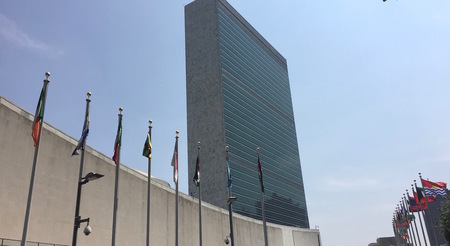New
VR Foundation joins United Nations ECOSOC
We are proud to share that the Vitiligo Research Foundation (VRF) has been granted Special Consultative Status with the United Nations Economic and Social Council (ECOSOC) — a major milestone in our mission to elevate vitiligo as a global health and human rights issue (pdf).
This status was formally approved on July 26, 2016, following a successful recommendation by the UN Committee on NGOs. It marks a new phase in our international advocacy efforts, giving VRF the opportunity to engage directly with UN agencies, participate in high-level meetings, and submit written or oral statements that contribute to global policy dialogue.
What is ECOSOC?
The Economic and Social Council (ECOSOC) is one of the six principal organs of the United Nations. It serves as the UN’s central platform for discussing international economic and social issues and for formulating policy recommendations to member states. ECOSOC coordinates the work of many specialized UN agencies and provides an official channel for civil society — including NGOs like VRF — to contribute to the development agenda.
Consultative status enables organizations to access UN meetings, collaborate with various UN bodies, and advocate for the interests of their constituencies on a global stage.
Why This Matters for the Vitiligo Community
Since its launch, World Vitiligo Day (WVD) has grown from a grassroots campaign into a global movement. One of its primary goals has been to gain formal recognition by the United Nations — not just as a symbolic act, but as a way to urge governments and institutions to increase support for vitiligo research, awareness, and treatment.
In pursuit of this, VRF organized a global petition campaign that collected over 500,000 signatures by 2015, reflecting widespread public support. ECOSOC recognition allows us to continue that momentum — enabling VRF to bring the needs of the vitiligo community directly to global decision-makers.
With this consultative status, we are better positioned to advocate for vitiligo inclusion in disability frameworks, to promote SDG-aligned health equity, and to work alongside other civil society groups advancing public health and human rights.
Suggested reading (updated on April 30, 2025):
- VR Foundation Submits Quadrennial Report to the United Nations ECOSOC
- World Vitiligo Day is now marked on the UN Calendar
- History Of The World Vitiligo Day

FAQOther Questions
- Are there any famous people with vitiligo?
Many celebrities have dealt with vitiligo while remaining in the public eye, maintaining a positive outlook, and having a successful career. Here are a few courageous famous peo...
- Vitiligo and Pregnancy
Pregnancy with vitiligo? The good news: vitiligo itself doesn’t make pregnancy unsafe. Most women stay stable (some even improve), though flares can pop up after birth — usually...
- How to get insurance coverage for vitiligo treatments?
Getting insurance coverage for vitiligo treatments can be challenging, but there are several steps you can take to improve your chances For a more in-depth look, check out our ...
Though it is not always easy to treat vitiligo, there is much to be gained by clearly understanding the diagnosis, the future implications, treatment options and their outcomes.
Many people deal with vitiligo while remaining in the public eye, maintaining a positive outlook, and having a successful career.
Copyright (C) Bodolóczki JúliaBy taking a little time to fill in the anonymous questionnaire, you can help researchers better understand and fight vitiligo.
